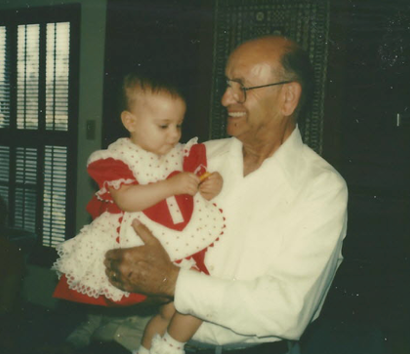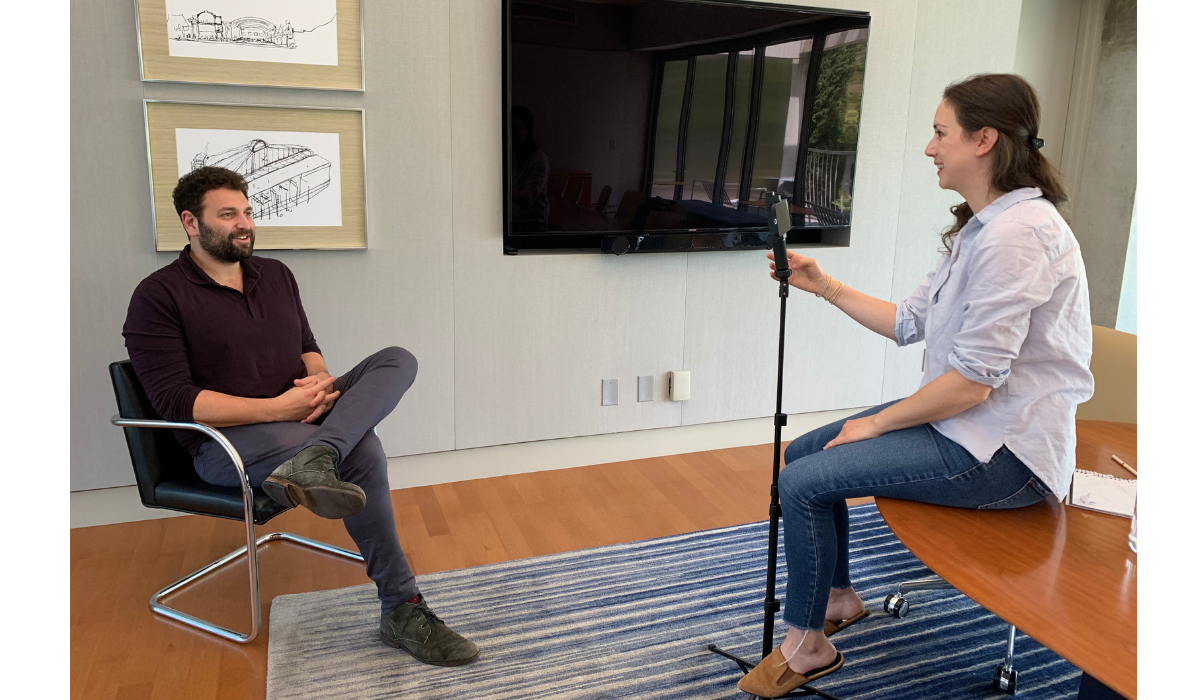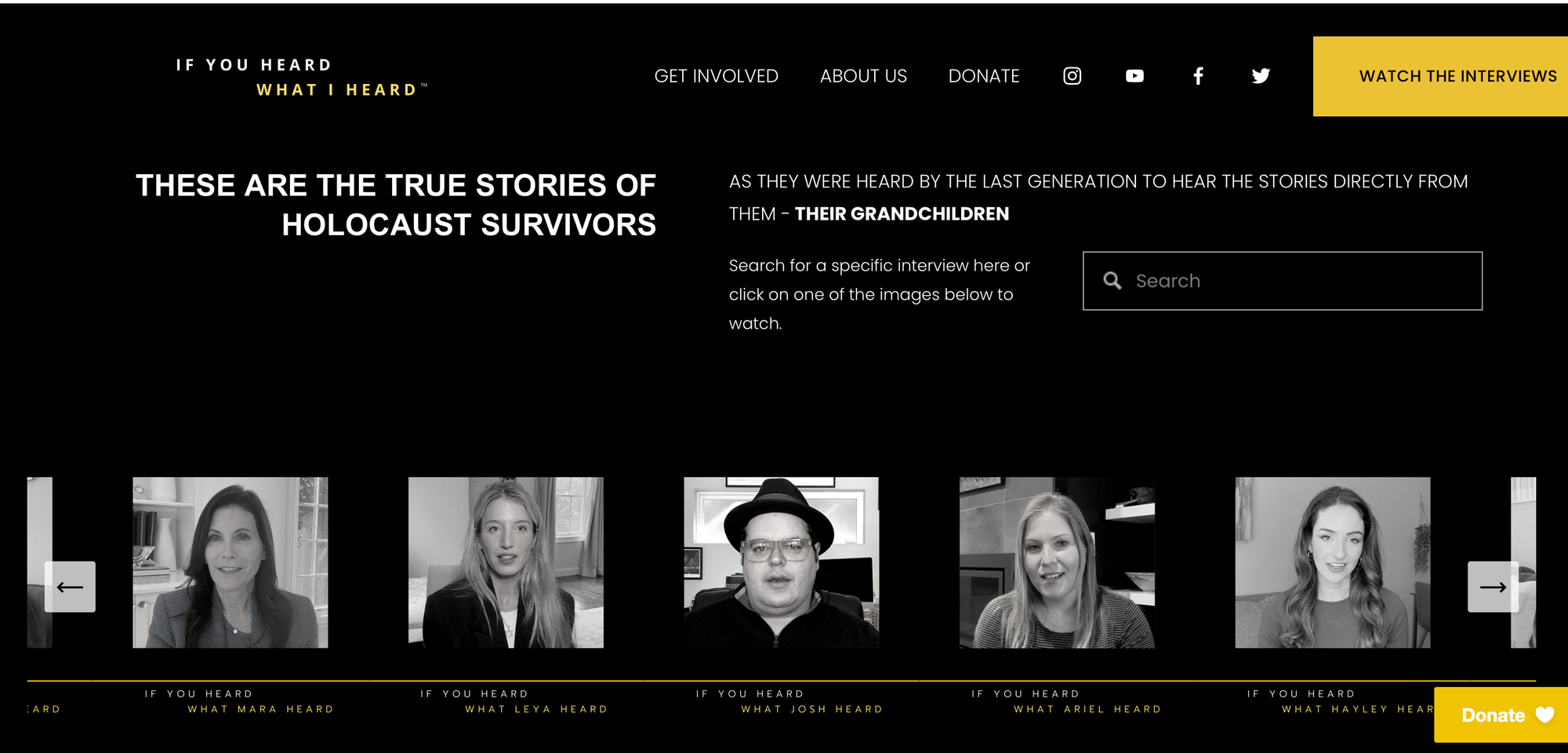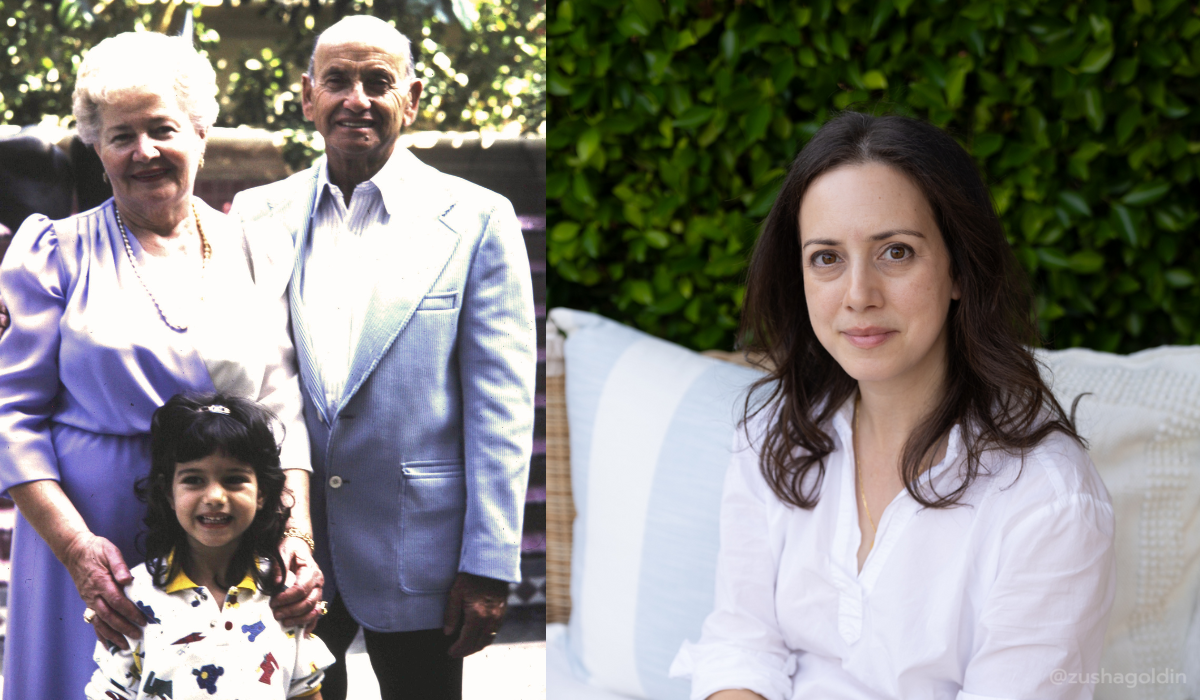To Commemorate International Holocaust Remembrance Day, Survivors’ Stories Are Shared by the Last Generation to Hear Them Firsthand—Their Grandchildren
January 27th is International Holocaust Remembrance Day, a day to remember the six million Jews and millions of other victims murdered by the Nazis. As we are seeing record rise in antisemitism globally, it is more important than ever to commemorate and learn about the lessons of the Holocaust. One such organization that is helping to keep history alive is If You Heart What I Heard. We spoke with the founder Carolyn Siegel to find out more about their mission and why their work more important now than ever before.
A CONVERSATION WITH CAROLYN SIEGEL
What prompted you to start If You Heard What I Heard?
I’m the granddaughter of two Holocaust survivors who made their home in L.A. after immigrating here in 1949. I heard my grandfather’s story of survival for the first time when I was eight years old, after finding a photo of his parents who were murdered by the Nazis. Finding that photo prompted a life-changing conversation for me—hearing about his family and who they were before they were lost, how my grandfather managed to escape and survive, and what it was like to rebuild after losing everything.

At the end of our conversation, he said “Carolyn, it will be the job of your generation to make sure the world doesn’t forget.” He could tell that I wasn’t really grasping the weight of what he was saying, and he continued, “You have to make sure the world doesn’t forget so that it doesn’t happen again.” In our community we often say “never forget” in reference to the Holocaust, but in May 2020, after a synagogue near the Grove in Los Angeles was graffitied (one of over 2,000 antisemitic incidents that year), it became obvious to me that the world was starting to forget.
I thought about the promise to my grandfather 30 years earlier, and I wanted to do something about it. I thought if more people today heard what I heard my whole life, we wouldn’t see this level of hate—not just towards Jews, but towards any group. I started filming the stories of grandchildren of Holocaust survivors—the last generation to ever hear survivor stories firsthand. I launched IfYouHeardWhatIHeard.com in April 2021 with 15 interviews. We are now a growing nonprofit and have 47 on the site with more on the way.
Steven Spielberg famously interviews Holocaust survivors with his organization, USC Shoah Foundation. Why was it important to you to interview grandchildren of Holocaust survivors (3Gs) and use social media to help disseminate your message?
Great question. As grandchildren of Holocaust survivors, we’re in a unique position in that we’re a bridge between the past and the future. We are the last generation to ever hear our grandparents’ stories firsthand. I can tell you what it was like to hear the story at eight years old, at 12 years old, at 20 years old, and hold his hand as his eyes started to tear up when talking about his family and how they were murdered. I’m part of the last generation that will ever be able to say, this is what it was like to sit in a room with this person and understand the look in their eyes when they talked about the loss of family, and feel the love that they had for me, not just because I was their granddaughter, but because it was a miracle for them that I existed.
If You Heard What I Heard interviews average 30 minutes in length and are meant to be digestible for today’s generation—like sitting down with a friend for a cup of coffee and hearing their story. We then take clips and quotes from the interviews and use that on social media to hook audiences in and get today’s generation to pay attention to warning signs of antisemitism by using the lessons of what our grandparents went through, and the power of storytelling to get those lessons to stick. Our work is meant to compliment the important work of the Shoah Foundation, it’s meant to be a way in for a younger generation so that they’ll want to learn more.
A recent poll found that 1 in 5 Gen Zers believes the Holocaust was a myth. As we honor International Holocaust Remembrance Day, how do you reconcile this information?
It’s a very hard statistic to come to terms with, but sadly not surprising. As we’re seeing the last of the Holocaust survivor generation tell their stories, we’re seeing a sharp rise in antisemitism, and this is a trend that we’ve been seeing for at least the past 10 years. That’s why galvanizing my generation, the grandchildren of Holocaust survivors, is so critical. The hope is that we’re able to get our grandparents’ stories out there in a big way so Gen Zers realize this happened to people like you and me, that were the same age as they are now, if not younger. There has to be a relatability there and I hope we can offer that.
I would encourage every Gen Zer who thinks the Holocaust “might be a myth” to visit our site, watch at least one of our interviews, view our social media posts, and educate themselves on our history, a history that isn’t so distant and a time and place that’s not so foreign from their own. The Holocaust happened in a modern society, it’s up to all of us to look at that and do everything possible to prevent such atrocities from happening again, to speak up for each other, to look out for each other.
The Holocaust wasn’t just a crime against Jews, it was a crime against humanity, and those—especially Gen Z—who say they stand for peace, equality, and justice, need to only listen to stories like mine to understand that if the Holocaust happened to young people like them, it can happen today if we don’t pay attention to the warning signs and take a stand against it.
How has doing this work changed your life, as well as the lives of others?
The community we’ve created with If You Heard What I Heard has been one of the biggest blessings to come out of doing this work. We have a very strong network of interviewees, advisors, and community members who all come from the same place of wanting to make sure what happened to our grandparents doesn’t happen again, and there’s something very empowering and beautiful about that.
When I see our interviewees at family events with their kids, 4Gs (4th generation Holocaust survivors), it’s a sign of the power and strength of who we are as a people, that we’re here, we’re not going anywhere, we’re continuing on, and that’s given me a lot of strength and reminded me of how resilient we are.
On a personal level, I’m even more proud to be Jewish, I’m proud of my grandparents for surviving and rebuilding in the way they did, and I’m so proud to come from a community that doesn’t give up. It’s also very rewarding to build something from scratch and watch it grow. Every milestone If You Heard What I Heard hits, every challenge we overcome, every step of growth is meaningful to experience and there’s a real sense of accomplishment that comes with that.
For our interviewees, it’s incredibly meaningful to hear their experiences with the process of sharing their families’ story, and their families’ reaction to it. The most meaningful messages to me are the ones that come from the reaction of the Holocaust survivor grandparents who are still with us. Across the board, their reaction is, “I’m so relieved to know the stories are continuing.” What more could I ask for than to give some peace of mind to a Holocaust survivor? For them to know that we’ve got this, that we’re not going to let the world forget about what happened.
For our audience—anyone who watches our interview, anyone who follows us @ifyouheardwhatiheard, or visits ifyouheardwhatiheard.com—I hope they come away with more compassion and empathy for others, that they feel inspired to face any challenge in their lives with hope and determination, and I hope more than anything they feel a connection to the Jewish community so they will stand with us and be our allies in the face of hate.
What are you working on now, and what are some new initiatives that are happening?
We have an extensive waitlist of grandchildren of Holocaust survivors who want to share their story with us, but not enough resources to make it happen. It’s just me running the organization and filming these stories. I’m fortunate that we’ve been able to hire some help with editing, but it’s a priority to fundraise so we can add more editing resources and film more interviews as quickly as possible.

We’re also working on some exciting initiatives in the entertainment space as a means of connecting our work and our message to larger audiences. As far as initiatives, we’re actively working on making our work resonate. It’s really about furthering our reach and awareness to make good on our promise to our Holocaust survivor grandparents that the world will never forget.





